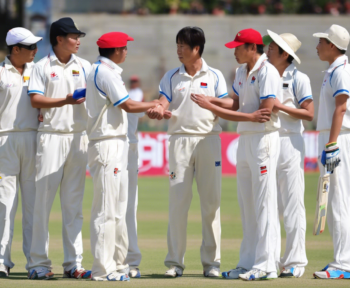Introduction
Zimbabwean Women vs South African Women: A Clash of Titans
When it comes to women’s empowerment, Africa has seen remarkable progress in recent decades. Two countries that have been at the forefront of this movement are Zimbabwe and South Africa. Both nations are home to strong, resilient women who have overcome numerous challenges to make their mark in various fields.
In this article, we will delve into the key differences and similarities between Zimbabwean and South African women, exploring their roles in society, politics, business, and beyond. We will also highlight the unique characteristics that define women’s empowerment in these two countries, as well as the challenges they continue to face. Let’s begin by examining the socio-cultural context that shapes the experiences of women in Zimbabwe and South Africa.
Socio-Cultural Context:
Zimbabwe
In Zimbabwe, women have played a significant role in the country’s history and development. Traditionally, women have been responsible for managing households, raising children, and supporting their families. Despite the patriarchal nature of Zimbabwean society, women have increasingly become more involved in politics, business, and other aspects of public life.
One of the most notable figures in Zimbabwean history is the late Sally Mugabe, the first wife of former President Robert Mugabe. Sally was a fierce advocate for women’s rights and played a key role in the country’s struggle for independence. Her legacy continues to inspire women in Zimbabwe to this day.
South Africa
Similarly, in South Africa, women have been instrumental in the fight against apartheid and the quest for equality and justice. Figures like Winnie Mandela and Albertina Sisulu are revered for their contributions to the anti-apartheid struggle. In post-apartheid South Africa, women have made significant strides in politics, business, and the arts.
The socio-cultural context in South Africa is diverse, with women from different ethnicities and backgrounds coming together to challenge gender norms and stereotypes. However, gender-based violence remains a pressing issue in the country, despite efforts to address it through legislation and public awareness campaigns.
Politics and Leadership:
Zimbabwe
In Zimbabwe, women have made significant strides in politics, with several female politicians holding key positions in government. Notable figures include Joice Mujuru, the country’s first female Vice President, and Oppah Muchinguri, the current Minister of Defense. These women have broken barriers and shattered glass ceilings in a male-dominated political landscape.
Despite these successes, women in Zimbabwe still face challenges such as discrimination, lack of representation in decision-making processes, and gender-based violence. Efforts are being made to address these issues through affirmative action policies and advocacy campaigns led by civil society organizations.
South Africa
South Africa has a strong tradition of women’s leadership, with women like Nelson Mandela’s ex-wife, Winnie Mandela, and anti-apartheid activist Albertina Sisulu, paving the way for future generations of female leaders. The country boasts progressive policies aimed at promoting gender equality and women’s empowerment.
In recent years, South Africa has seen an increase in the number of women in leadership positions, both in government and the private sector. Figures like Nkosazana Dlamini-Zuma and Lindiwe Zulu have played pivotal roles in shaping the country’s political landscape and advocating for women’s rights.
Economic Empowerment:
Zimbabwe
Economic empowerment is a crucial aspect of women’s empowerment in Zimbabwe, where women make up a significant portion of the workforce in sectors such as agriculture, education, and healthcare. However, women in Zimbabwe often face barriers to accessing credit, land, and other resources needed to start and grow businesses.
To address these challenges, the government and non-profit organizations in Zimbabwe have implemented initiatives to support women entrepreneurs and promote women’s economic independence. These efforts have had a positive impact, but more work is needed to ensure that women have equal opportunities to participate in the economy.
South Africa
In South Africa, women have made significant strides in the business world, with many female entrepreneurs and executives leading successful companies across various industries. The country has implemented policies to promote women’s economic empowerment, such as preferential procurement for women-owned businesses and gender quotas on corporate boards.
Despite these advancements, gender disparities persist in South Africa’s economy, with women earning less than men and facing challenges in accessing finance and mentorship opportunities. Efforts are underway to address these issues and create a more inclusive and equitable business environment for women.
Challenges and Opportunities:
Zimbabwe and South Africa
Both Zimbabwe and South Africa face similar challenges concerning women’s empowerment, including gender-based violence, limited access to education and healthcare, and discriminatory social norms. However, these challenges also present opportunities for collaboration and advocacy to drive positive change in both countries.
Efforts to address these challenges include legislative reforms, awareness campaigns, and grassroots initiatives aimed at empowering women and girls to become agents of change in their communities. By working together and supporting each other, Zimbabwean and South African women can overcome these obstacles and create a more inclusive and equitable society for future generations.
Conclusion
In conclusion, the Zimbabwean and South African women are indeed “clash of titans”, having made significant strides in their respective countries and beyond. Despite facing numerous challenges, women in Zimbabwe and South Africa continue to defy expectations and push boundaries to shape a more inclusive and equitable society for all.
Through their leadership, resilience, and determination, Zimbabwean and South African women are not just empowering themselves but inspiring women around the world to strive for excellence and equality. As we celebrate their achievements and honor their legacy, let us also commit to supporting their ongoing efforts to build a brighter future for all.
Frequently Asked Questions (FAQs)
- What are some of the key factors driving women’s empowerment in Zimbabwe and South Africa?
-
Factors such as historical legacies of female activism, evolving socio-cultural norms, and progressive government policies have played a crucial role in driving women’s empowerment in both countries.
-
How do women in Zimbabwe and South Africa navigate the challenges of gender-based violence and discrimination?
-
Women in Zimbabwe and South Africa engage in advocacy, awareness campaigns, and support networks to address gender-based violence and discrimination, while also calling for legislative reforms to promote gender equality.
-
What are some of the initiatives aimed at promoting economic empowerment for women in Zimbabwe and South Africa?
-
Initiatives such as microfinance programs, skills training workshops, and mentorship opportunities are designed to support women entrepreneurs and enhance their economic independence in Zimbabwe and South Africa.
-
How can women in Zimbabwe and South Africa collaborate to advance the cause of gender equality and women’s empowerment?
-
Women in Zimbabwe and South Africa can collaborate through partnerships, mentorship programs, and advocacy campaigns to amplify their voices, share resources, and drive positive change in their respective countries and beyond.
-
What role do men play in supporting women’s empowerment in Zimbabwe and South Africa?
- Men play a critical role in supporting women’s empowerment by advocating for gender equality, challenging harmful stereotypes, and actively engaging in efforts to promote women’s rights and opportunities in Zimbabwe and South Africa.


